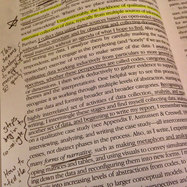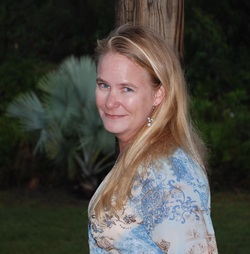
Learning to research effectively is vital when you are writing a novel. Almost every story could benefit from some level of research, but when you are writing about an unfamiliar subject, it becomes crucial. This Part Two of this post, so I’ll pick up at number 4.
4. Make it easy on yourself to find research information as you write. Everybody has their own system, but there’s nothing worse than discovering a vital piece of information, and then to not be able to find it when you need it. When I’m researching, I make a note (or copy and paste if I’m online) of ANYTHING that is relevant, and sometimes just things that pique my interest. I create folders to hold the information. For example, when I was researching Positively Beautiful, I had folders listed “breast cancer,” “BRCA stories” “flying” and “urban exploring.” If a folder became too big to navigate easily, I would create subset folders. Eventually, the “breast cancer” folder blossomed into several new folders titled “Interviews with breast cancer surgeons,” “Visit to hospital,” and “Chemotherapy treatment.” In addition, as I’m writing, I will footnote in the manuscript where to find the information. Sure, I have to get rid of the footnotes before sending it to my editor, but it’s worth it to be able to find the information easily.
5. Resist the urge to show off. You can’t data-dump every piece of information that you have learned. It will bog down your story with useless detail. Repeat to yourself: I will only show the tip of the iceberg. I wrote a scene in All We Have Left which was chock-full of hard worn climbing lingo and technical description. My editor wrote in the manuscript pages: “I’m skimming most of this, Wendy!” I got the point. Sometimes it’s hard to determine how much information to use. My rule of thumb is that if something interests or surprises me the first time I read it, then it may be worth using in the story. It’s often little details that stand out the most. For example, while researching All We Have Left, I learned about the slickness of the handrails inside the stairwells of the Twin Towers on 9/11, caused by the sweat of the thousands of people who had run their hands down those handrails as they fled for their lives. This detail is visceral, and tells a story without words.
6. Don’t get bogged down in details. Sure, it would be great if you could describe and name the 18th century cutlery your character is using, but is a week, or even a day’s worth of research worth the small detail? Save the bulk of your research time for the big subjects. The small stuff is just gravy, and will often come as a pleasant surprise as you are pursuing more important research.
7. Know when to stop. It is easy and very satisfying to research, but at some point it becomes an excuse not to write the book. I don’t believe in setting an arbitrary time limit. (At 12:01 on October 3rd, I WILL STOP RESEARCHING. No…), but you need to recognize when you’ve become comfortable with your subject matter. We can’t be absolute experts on every subject we write about (how would we find time to write?), but this is where having networked with knowledgeable people who are willing to read sections of your story for veracity comes in handy.
8. Have fun! This is my most important piece of advice. While you may not have to write what you know, write about what interests you. If you find yourself bored by your subject matter, chances are, your reader will find it boring to read.
4. Make it easy on yourself to find research information as you write. Everybody has their own system, but there’s nothing worse than discovering a vital piece of information, and then to not be able to find it when you need it. When I’m researching, I make a note (or copy and paste if I’m online) of ANYTHING that is relevant, and sometimes just things that pique my interest. I create folders to hold the information. For example, when I was researching Positively Beautiful, I had folders listed “breast cancer,” “BRCA stories” “flying” and “urban exploring.” If a folder became too big to navigate easily, I would create subset folders. Eventually, the “breast cancer” folder blossomed into several new folders titled “Interviews with breast cancer surgeons,” “Visit to hospital,” and “Chemotherapy treatment.” In addition, as I’m writing, I will footnote in the manuscript where to find the information. Sure, I have to get rid of the footnotes before sending it to my editor, but it’s worth it to be able to find the information easily.
5. Resist the urge to show off. You can’t data-dump every piece of information that you have learned. It will bog down your story with useless detail. Repeat to yourself: I will only show the tip of the iceberg. I wrote a scene in All We Have Left which was chock-full of hard worn climbing lingo and technical description. My editor wrote in the manuscript pages: “I’m skimming most of this, Wendy!” I got the point. Sometimes it’s hard to determine how much information to use. My rule of thumb is that if something interests or surprises me the first time I read it, then it may be worth using in the story. It’s often little details that stand out the most. For example, while researching All We Have Left, I learned about the slickness of the handrails inside the stairwells of the Twin Towers on 9/11, caused by the sweat of the thousands of people who had run their hands down those handrails as they fled for their lives. This detail is visceral, and tells a story without words.
6. Don’t get bogged down in details. Sure, it would be great if you could describe and name the 18th century cutlery your character is using, but is a week, or even a day’s worth of research worth the small detail? Save the bulk of your research time for the big subjects. The small stuff is just gravy, and will often come as a pleasant surprise as you are pursuing more important research.
7. Know when to stop. It is easy and very satisfying to research, but at some point it becomes an excuse not to write the book. I don’t believe in setting an arbitrary time limit. (At 12:01 on October 3rd, I WILL STOP RESEARCHING. No…), but you need to recognize when you’ve become comfortable with your subject matter. We can’t be absolute experts on every subject we write about (how would we find time to write?), but this is where having networked with knowledgeable people who are willing to read sections of your story for veracity comes in handy.
8. Have fun! This is my most important piece of advice. While you may not have to write what you know, write about what interests you. If you find yourself bored by your subject matter, chances are, your reader will find it boring to read.

 RSS Feed
RSS Feed